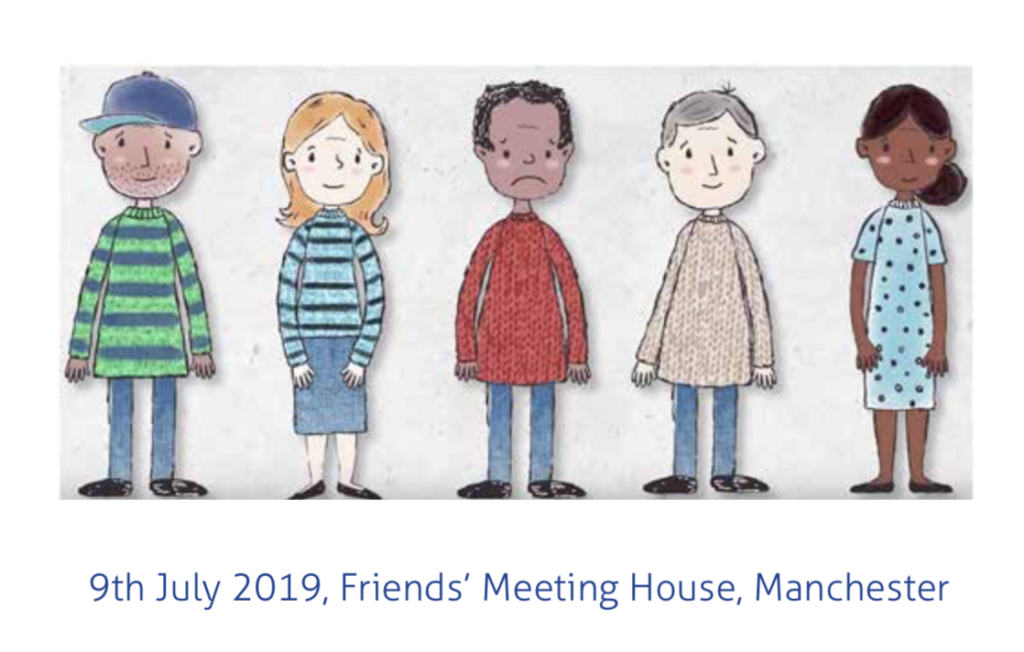
Carers of people with mental health difficulties often experience their own high levels of burden and disempowerment and have poor mental well-being. Lack of diagnosis information, financial difficulties, feelings of hopelessness and stigma have all been reported as factors that can lead to carers feeling isolated (Buteau et al, 2008). There is growing recognition of the need for support and education for carers who support individuals with mental health difficulties.
Psychoeducation for carers of people with mental health difficulties is highlighted by NICE (NICE, 2015) alongside peer support as increasingly important to services. This study describes how a psychoeducational intervention was developed collaboratively with a carer consultant and two mental health professionals. In addition to co-development of the intervention, the programme was delivered in a similar capacity, led by the carer consultant with support from by a health professional.
The ‘Training Education and Support’ (TES) programme was for carers only, and was developed using principals from Hoffman et al.,’s (2007) Family Connections programme. The aim of the programme was to evaluate carer-focused outcomes, including burden, empowerment and well-being. This study had carers at the centre of the development of the programme and the focus of the outcomes.
The TES programme involves carers attending up to 20, two hour training sessions. Participants first attend two (or more) mental health psychoeducation sessions which focus on a particular diagnosis, before going on to attend five sessions of group based learning which focused on certain skills such as managing stressful situations. Carers complete exercises as part of the sessions and also outside of the sessions.

Can peer-led support help the carers of people who use secondary mental health care services?
Methods
The study took place in a single site in a North West NHS Trust in England. A lived experience carer co-delivered the ‘Training, Education and Support’ (TES) to carers in a group setting. The lived experience carer also provided peer support to carers following the programme.
To participate, carers had to be over the age of 18 and had to have a family member with a mental health diagnosis who was in contact with secondary mental health services. Carers could also participate if they were referred by primary care or local carers centres if they were not involved with secondary care.
Carers who attended the programme completed three questionnaires, assessing Mental Well-being (Tenant et al., 2007), Burden (Reinhard et al., 1994) and Empowerment (Kageyama et al., 2016) at five different time points.
Results
In total, 60 carers completed the programme and the three measures across five time points (after psychoeducation, after Family skills session, twice after problem solving sessions and after all sessions).
Significant, positive differences were found across all three measures with an increase being found on The Mental Health and Wellbeing Scale (p < 0.05), Burden assessment Scale (p < 0.05) and family Empowerment Scale (p < 0.05).
For each of the scales there was a significant improvement between the first and final time point, and there were some improvements in between these points as well. This suggests that within this context, the programme improved wellbeing, decreased burden and increased empowerment.

This service evaluation of peer-led training, education and support for mental health carers showed positive increases in empowerment and wellbeing, and a reduction in burden.
Conclusions
- There was a positive impact for carers on their levels of wellbeing, burden and empowerment.
- This is the first study to complete a service evaluation of the peer-led training, education and support and the positive results suggest that there should be further investment in this form of carer support.
- Although there were limitations to this study, it is a step in the right direction for recognising the need for peer led carer support programmes and for showcasing the positive impacts that these interventions can have on carers.

Are peer-led support services a step in the right direction for mental health carers?
Strengths and limitations
This study showed that it is possible to implement and run a peer-led mental health carer support programme in an NHS setting, which has a positive impact on mental health carers. Although initial engagement was quite low, a large number of carers did complete the programme.
The study also shows how co-development and co-delivery of services can work in NHS settings, displaying a clear worked example that other services could follow. This is important as it provides further evidence for the movement of increasing peer support in services and recognition of the need for support, education and training for mental health carers.
There were some limitations to this study, some of which are to be expected due to the service evaluation methodology as compared to something more rigorous such as a randomised controlled trial. This evaluation took place at a single site, without a comparison group and development and delivery of the intervention was conducted by the same lived experience carer.
As this was evaluated across three measures, it would also have been beneficial to include some qualitative evaluation. By interviewing the carers that attended, it would have perhaps given more insight into which parts of the programme carers found most helpful and had the most impact on their wellbeing, levels of burden and feelings of empowerment.
Implications for practice
Due to the limitations of this study, there are perhaps no direct implications for practice, but the publication should prompt action amongst mental health professionals and mental health carers to consider and request similar services within their own Trusts.

Does your NHS Trust offer peer-led training, education and support for mental health carers?
Conflicts of interest
No conflicts of interest.
#MentalHealthCarers
This blog has been written to highlight the importance of support for mental health carers and the involvement of peer support and co-production. This study describes an innovative way of offering training education and support to mental health carers, with extensive involvement from a lived experience carer. Peer support and support more generally for mental health carers are two themes that will be talked at the Mental Health Carers Workshop on Tuesday 9th July in Manchester. The event aims to bring together, carers, family and friends, clinicians and researchers to discuss historical and current support for carers, and new innovative resources. You can join the conversation live on Twitter at #MentalHealthCarers.

Outputs from the Mental Health Carers Workshop will be made available on the REACT website after the event.
Links
Primary paper
Chiocchi, J., Lamph, G., Slevin, P., Fisher-Smith, D., & Sampson, M. (2019). Can a carer (peer) led psychoeducation programme improve mental health carers well-being, reduce burden and enrich empowerment: a service evaluation study. The Journal of Mental Health Training, Education and Practice, 14(2), 131-140.
Toolkits available online for Mental Health Carers
- The Relatives Education and Coping Toolkit (REACT) https://reacttoolkit.uk/
- Carer support and involvement in secure mental health services https://www.england.nhs.uk/publication/carer-support-and-involvement-in-secure-mental-health-services/
Other references
Buteau, E., Dawkins, K., & Hoffman, P. (2008). In their own words: Improving services and hopefulness for families dealing with BPD. Social Work in Mental Health, 6(1-2), 203-214.
Hoffman, P. D., Fruzzetti, A. E., & Buteau, E. (2007). Understanding and engaging families: An education, skills and support program for relatives impacted by borderline personality disorder. Journal of Mental Health, 16(1), 69-82.
Kageyama, M., Nakamura, Y., Kobayashi, S. and Yokoyama, K.(2016), “Validity and reliability of the Family Empowerment Scale for caregivers of adults with mental health issue”, Journal of Psychiatric Mental Health Nursing, Vol. 23 No. 8, pp. 521-31.
NICE Quality Standard 88 (2015), “Personality disorders: borderline and antisocial”, available at: www.nice.org.uk/guidance/QS88 (accessed 4 October 2018).
Reinhard, S.C., Gubman, G.D., Horwitz, A.V. and Minsky, S.(1994), “Burden assessment scale for families of the seriously mentally ill”, Evaluation and Program Planning, Vol. 17 No. 3, pp. 261-9.
Tennant, R., Hiller, L., Fishwick, R., Platt, S., Joseph, S., Weich, S.and Stewart-Brown, S. (2007), “The Warwick-Edinburgh Mental Well-being Scale (WEMWBS): development and UK validation”, Health and Quality of Life Outcomes, Vol. 5 No. 1, p. 63.
Photo credits
- Photo by Bruno Nascimento on Unsplash
